
“Thirst” Korean Theatrical Poster (Banned)
Director: Park Chan-wook
Producer: Park Chan-wook
Cast: Song Kang-Ho, Kim Ok-Vin, Shin Ha-Kyun, Kim Hae-Sook, Park In-Hwan, Song Young-Chang
Running Time: 134/145 min.
By JJ Hatfield
When I first heard of this film, it was presented as a vampire movie. The last thing I felt the world needed was yet another vampire (or zombie) flick. However, knowing that Song Kang-ho was the lead role and the director was Park Chan-wook, I had to see it. Park is very skilled in taking your mind places you wouldn’t ordinarily go.
The film begins at a hospital in Africa where young Roman Catholic priest named Sang-hyun (Song Kang-ho) ministers to the ill and dying. He sometimes feels that the world will never change for the better. He has taken his vows to heart and soul, but sometimes has doubts. Sang-hyun is a very serious and softly silent man. In order to try and help more people, this selfless compassionate priest has so much good will to share, that he volunteers for an experimental vaccine to prevent a fatal illness, knowing it could cost him his life. He is a good candidate because the virus seems to be more common in Caucasians and Asians. Sang-hyun is thoroughly aware of the risks, but he lives to serve the people he can help. How much greater love could anyone have for mankind than to risk their life to potentially save others?
Unfortunately, the priest’s body is eventually overwhelmed and he begins to hemorrhage faster than they can replace his blood. After frantically trying to save him, the cardiac monitor shows flatline. Then, to the medical team’s great astonishment, the monitor suddenly shows his heart beating! He is very much alive. Unknown to anyone, what brought him back was vampire blood, that was unknowingly given to the priest. After people hear of his miraculous recovery many believe he has special powers to heal. He is thus far the only survivor, but he is still infected with the virus.
He feels different. He is different. Desires he never imagined fill his mind. He continues to work at the hospital, but now, it is so he has access to blood. Without more blood, the symptoms begin to reappear. How could such a humanitarian be blamed for receiving vampire tainted blood? He doesn’t panic. Nor does he run about screaming they fix him, or cure him. In his same quiet manner, he accepts what has happened and tries to keep anyone from knowing he is no longer the same man. He doesn’t attack strangers and rip out their jugular with his fangs or hack up victims for dinner. His open access to the hospital provides him with the blood he needs, usually by slurping up some unconscious patients blood bag. When I say slurping, I do mean just that. Making slurping, smacking lips, sucking noises. These scenes make the character seem to take it in stride now that he will always need blood and his main concern becomes how to conveniently arrange for it. He knows things can never go back to the way they were.
His vow of chastity as a Roman Catholic priest is fading rapidly, as the vampire blood awakens carnal, physical desires of the flesh. Sang-hyun finds himself in lust/obsession/love with the young wife Tae-joo (Kim Ok-vin,) of an old friend.
He feels obligated to rescue her from her abusive husband and his mother. Before long he realizes he loves her and she seems to love him as well, even though he tells her he is a vampire. She actually seems to find that exciting, but then she finds virtually anything wild and new exciting. Especially sex. Sang-hyun has to exert great control over the vampire – ness and tries to harm her as little as possible, but before long, everything is drenched in blood.
It is interesting watching the priest’s descent into all things vampire. On a more emotional level, it is terryfying.
Some of the old stories were apparently true and others were not. He does have to stay out of the sun, but he did not grow huge fangs and go on a slaughter spree. Song Kang-ho performs perfectly, from the heroic young priest trying to find meaning in a world full of evil, to being perilously close to evil himself.
If it is not yet obvious, this is not exactly your basic horror film. The frightening aspect has far more to do with the priest losing himself, and the compassionate man he once was. Part of that includes some extremely dark humor. Some promos use the term comedy, but I don’t think that does the film and the cast justice, nor does it give an accurate impression. In my experience, it is more difficult to pull off dark humor than straight comedy. Tae-joo seems to actually enjoy her barely controlled lover, no matter how bizarre the scene gets. And there are some rather bizarre scenes.
Much of the film’s believability laid squarely on the shoulders of Song Kang-ho and to his great credit, he does a fantastic job! I found him very believable as the self sacrificing priest, and as he succumbs even further into a world of darkness.
One of the issues about vampire movies is the usual absence of responsibility or morals or even repercussions for actions. This film takes on those questions, however, not to the detriment of the story line or the pacing.
“Thirst” is a very fascinating film on several levels, and not just as excellent entertainment. There are several aspects that could be interpreted in different ways. When something unforseen and unbidden happens to someone, do they bear any responsibility for their actions? Or are they merely victims of a greater evil?
The cinematography was directed by Chung Chung-hoon. Some of the scenes replaced exposition that might have dragged the dialogue down. The camera work plays a large role in establishing Sang-hyun as a devout faithful, devoted priest. Kang-ho is an amazing actor. Every role I have seen him play has been different and called on him to hone his skills to the point the man can do any role! I found his performance, as he changed into what he used to pray against, excellent and very believable in his character.
Cho Young-ook wrote the original music score. It supports the film but is not a driving force.
Park Chan-wook has openly stated his inspiration is from “Therese Raquin,” an 1867 French novel by Emile Zola. It was made into a film by Marcel Carne in 1953, with Simone Signoret and Raf Vallone. Park could have claimed the inspiration was his own, but to his credit, he has been open about it from the beginning. If he had not told people, I really don’t know if there is anyone that would have made a connection. The novel does not have any vampires, nor priests for that matter, but I believe his motivation was based on the characters and how they too changed.
“Thirst” is much more than a vampire movie. It is at times frightening, blood-drenched, insanely sexual, gross, grim and nauseating for some; with dark humor in abundance, but I encourage the viewer to look deeper. Park Chan-wook is a complex film maker. “Thirst” has more layers than the most obvious one. After excessiveness to the nth degree of being human, is there a possible way of return? Does the need for something justify any means? Even if another life is now infected? Is redemption an illusion? There are more than a few issues raised in this film, and to his credit, Park does not give you a tidy answer. There are some things that are not easily labeled right or wrong. Damned good film!
JJ Hatfield’s Rating: 9/10
By NIngen
Thirst is about a priest who becomes the participant of some weird experiment, because he believes it will help dying patients. Unfortunately, Father Sang-Hyun becomes a vampire in the process. And his desire for blood somehow gets him entangled with a family he was acquainted with as a child. The adopted daughter in the group, Tae-Ju, sleeps around on the mom’s son with the Padre, and, from there, the situation escalates.
I remember a guy on a board now long gone who was not really impressed with Oldboy, and even argued that there’s no point in remaking it, because it’s so “Hollywood”, that it’d just be cheaper to redub it in English. While I was fairly disappointed at the flick coming off a bit anti-climactic for my tastes, I was still willing to let that comment slide until Sympathy for Lady Vengeance. Unfortunately, I lost track of the story around the half-way point, and it ended up being more of a torture porn flick than a revenge flick, even though revenge was a factor.
So I was hoping third time would be the charm with Thirst, since I missed out on “I’m a Cyborg, But That’s Ok” and “Mr. Vengeance”. But I have to say I’m sort of agreeing with that ex-flamer. I really don’t see anything innovative from Park Chan-Wook, other than with his flashy and bold set designs and wardrobes. His style of story-telling lacks nuance and his characters lack more distinctive personalities. [His actors do a good job with moving the story forward, but their roles are generally under-developed.]
And Thirst is no exception to PCW’s “style”. It’s basically every indie murder movie flick ever made with a vampire theme attached to it. It’s got a male lead forced to resort to criminal behavior, a femme fatale, a dysfunctional family, unsuspecting locals turned into victims, etc. In addition, half the time, I can’t even tell if the movie’s really meant to be a parody, because it’s so pedestrian in the way it (literally) goes for the jugular, rather than actually provide a new take on the genre.
For example, while there’s plenty of blood-sucking to go around, the movie cops out where it really counts-with suspenseful moments like the male of the house-hold, Kang-woo, nearly getting stabbed in his sleep by Tae-Ju. The knife she uses just gets close to his body, and then gets pulled away. And even the victims are sort of “slurped” behind closed doors. I’m not expecting Hostel or Saw-style violence, but there has to be a feeling of shock from the experience. And, unfortunately, you can predict who’s gonna be next a mile away. Maybe the details aren’t obvious, but they don’t really up the impact of the scenes.
The other issue I have is that Thirst ends up turning into a relationship flick, more than a horror flick. The viewer has to sit through a incredibly tedious soft-core sex scene, a pointless lover’s spat, and discussions on emotional issues. Seriously, it’s like watching an R-rated version of Twilight. It’s that pathetic.
But if I have anything positive to say about Thirst, it’s that the cast is very believable, in spite of being wasted. The actors don’t play the self-awareness game. Nor do they ham up their parts. They keep their scenes grounded in the reality of the setting. And their performances are the only reason that I can stand the wretched pacing of the movie.
So, if you go to see Thirst, expecting some Dead Alive/Braindead-type action, you’ll be disappointed. But if you like horror movies to take their time getting to the good stuff, while giving you a feeling of being creeped out without actually experience it on-screen, then Thirst will probably deliver for you.
Ningen’s Rating: 9/10 Sets, lighting, and outfits: 8/10 Story: 6/10 Movie in general: 5.5/10

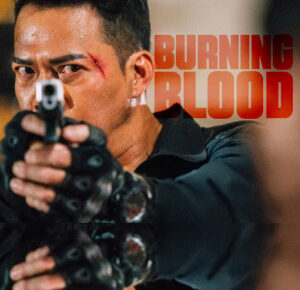
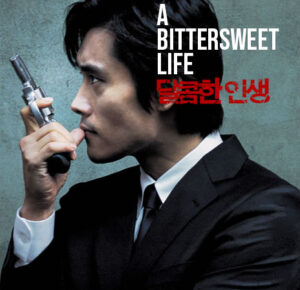
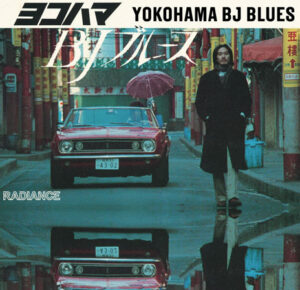








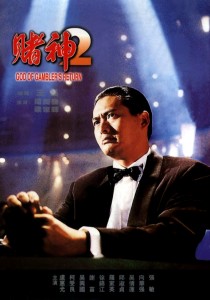
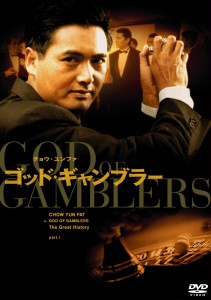





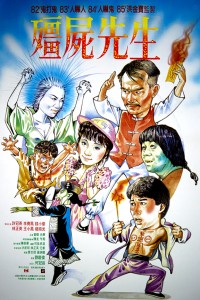



5 Comments